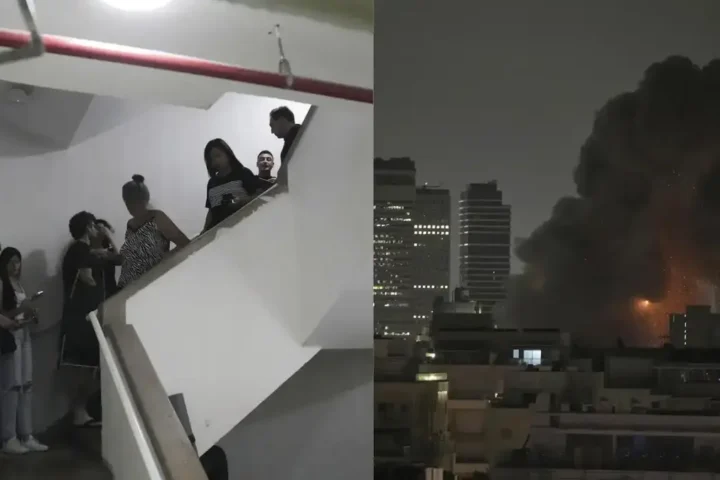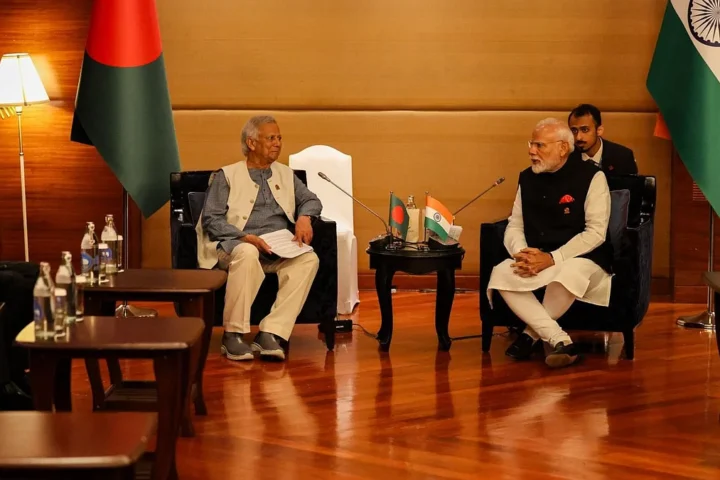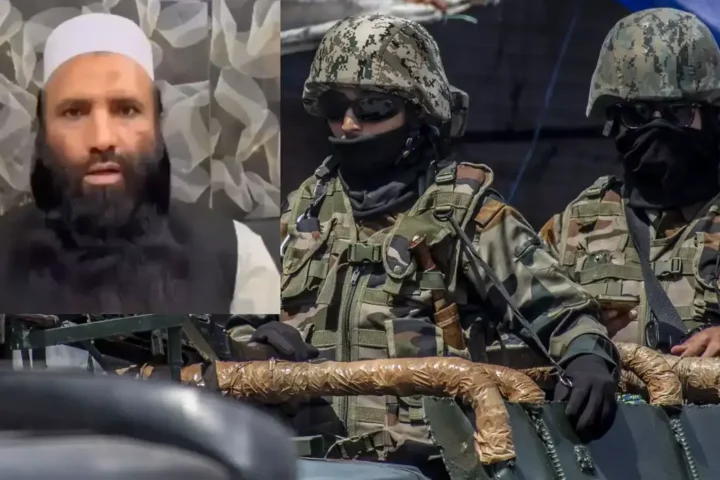Tensions between India and Pakistan escalated dramatically late Thursday night after Indian defense forces successfully intercepted a major missile-drone strike launched by Pakistan targeting Indian military installations. The attempted attack, reportedly aimed at three Indian Air Force bases in Jammu, Pathankot, and Jaisalmer, triggered high-alert warnings across several cities.
Air raid sirens blared in Chandigarh, Patiala, and Amritsar early Friday morning. Deputy Commissioners in these cities urged residents to remain indoors, avoid balconies, and follow safety protocols. The Union Territory of Chandigarh, which serves as the capital for both Punjab and Haryana, imposed a blackout Thursday night, and schools across the city have been shut till Saturday.
Indian Retaliation and Pakistani Aerial Response
Following India’s precision airstrikes under “Operation Sindoor” targeting terrorist camps across Pakistan and Pakistan-occupied Kashmir, Islamabad responded with intensified cross-border attacks. However, the Pakistani retaliation was met with swift and decisive action from Indian forces.
According to defense sources, three Pakistani jets—two JF-17s and one F-16—were shot down by the Indian Air Force in Indian airspace as they attempted to strike military targets in Jammu and Rajasthan. One Pakistani pilot is reported to have been captured alive, and wreckage from the downed jets has been recovered near the LoC.
Pakistan, in turn, claimed to have destroyed five Indian aircraft and 25 drones—allegations that the Indian government has categorically denied, stating all Indian aircraft returned safely and that multiple Pakistani drones and missiles were neutralized mid-air.
Punjab, Border Regions Under Emergency Protocols
The Punjab government swiftly responded by declaring emergency measures across the state. All educational institutions have been closed for at least three days, and all police personnel have been ordered to report to duty immediately. In Tarn Taran and Fazilka, authorities have banned firecrackers and loud celebrations, fearing they may be mistaken for hostile activity.
In Patiala, the district administration urged calm but announced an indefinite closure of schools and colleges. “Remain indoors and only step out if absolutely necessary,” said the Deputy Commissioner in an official statement.
Cross-Border Shelling and Casualties
Pakistani forces intensified shelling across the Line of Control (LoC), targeting areas in Kupwara, Baramulla, Uri, Poonch, Mendhar, and Rajouri, resulting in the death of at least 16 civilians, including women and children. Pakistan reportedly used mortars and heavy artillery, violating the ceasefire agreement. In retaliation, Indian artillery units have been pounding terror launch pads near the LoC.
Explosions Rock Lahore, Internet Disruptions in Jammu
In a yet-unverified development, explosions were heard in Lahore, indicating possible covert operations by Indian forces or accidental blasts amid the chaos. Meanwhile, internet services in parts of Jammu were disrupted as a precautionary security measure.
Situation at a Glance:
- 3 Pakistani fighter jets downed by Indian forces
- 1 Pakistani pilot in Indian custody
- 8+ Pakistani drones and missiles intercepted
- Indian forces deny loss of any aircraft
- 16 civilians killed in LoC shelling
- Educational institutions closed across Punjab, Chandigarh, and Patiala
- Blackout observed in Chandigarh
- Air sirens sounded in major Punjab cities
- Operation Sindoor targets terror bases post-Pahalgam attack
Interesting Read
International Concerns Mount
Global powers including the United States, France, and the United Nations have issued statements urging both nations to de-escalate and exercise restraint. Security analysts fear that continued skirmishes could push the two nuclear-armed nations into a full-scale conflict.







